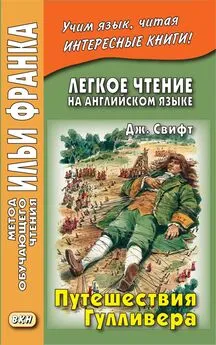The Theatre - Kellerman, Jonathan
- Название:Kellerman, Jonathan
- Автор:
- Жанр:
- Издательство:неизвестно
- Год:неизвестен
- ISBN:нет данных
- Рейтинг:
- Избранное:Добавить в избранное
-
Отзывы:
-
Ваша оценка:
The Theatre - Kellerman, Jonathan краткое содержание
For all its many crimes of passion and politics, Jerusalem has only once before been victimized by a serial killer. Now the elusive psychopath is back, slipping through the fingers of police inspector Daniel Sharavi. And one murderer with a taste for young Arab women can destroy the delicate balance Jerusalem needs to survive.
Kellerman, Jonathan - читать онлайн бесплатно полную версию (весь текст целиком)
Интервал:
Закладка:
Daniel reached into his pocket, drew out a handful of coins, and dropped them into the filthy palm without counting. The beggar began blessing him in a high-pitched wail. The bony hand continued to shake, sifting the money as if it were grain, probing, hefting, decoding its value. A mental total was reached; the beggar's mouth twisted into a gaping, black-gummed smile. The blessings increased in volume and vigor: Daniel and his offspring for ten generations would be graced with good health and riches for time immemorial
Suddenly a group of six other paupers appeared from nowhere. Hunched, lame, snaggletoothed, and twisted, they shuffled and limped toward the detective, proclaiming individual litanies of despair that merged to a toneless, mournful dirge. Before he could get to the Escort, they'd reached him. Forming a circle around him, they began chanting louder, beseeching the kind sir. Emptying his pockets, he gave something to each of them, compressing his nostrils to avoid their stench.
Finally he got away and into the Escort. The Middle Ages, he thought, driving off to the accompaniment of their phlegmy benedictions. For years the government had offered the beggars jobs, welfare, anything to rid the station of their presence. But they were the descendants of generations of beggars who regarded themselves as trained specialists, plying an honorable family trade. Many of them, it was said, made an excellent living-more than that of a policeman-so perhaps he was a fool to have donated. Still, one needed any blessings one could get.
A stop back at Headquarters produced meager rewards: the information on Schlesinger hadn't come in. The troubled watchman, Hajab, had no criminal record, nor had he been treated at any mental institution. Of the other Amelia Catherine people, only Dr. Al Biyadi was known to Records. That knowledge was summed up in four typewritten pages marked official access only and placed on his desk in a sealed envelope. The data within were uninspiring.
It had been, as he'd suspected, a case of immigration complications. After seven years in Detroit, Al Biyadi had applied for and been granted American citizenship. After becoming an American, he'd attended two pro-PLO demonstrations at Wayne State and gotten his name in the FBI computer. The FBI had informed Mossad, and when Al Biyadi had applied for permission to reenter Israel and for a work permit to practice medicine, the computer had spat his name back out. Both requests had been refused pending a background investigation.
The usual paper storm had followed-an exchange of stiffly worded consular letters, U.N. protests, letters of support from Al Biyadi's congressman, and endorsements from medical school professors with Jewish surnames, all assuring the government that Dr. Hassan Al Biyadi was a man of sterling character. Some local newspaper coverage, as well, Daniel noted-personality pieces portraying the young physician as an idealist and a victim of discrimination.
In the end, the summary concluded, Al Biyadi had been determined to be "relatively apolitical," his involvement in PLO affairs confined to attendance at rallies, his primary life interests listed as "expensive sports cars and haberdashery; expensive stereo equipment and electronic gadgetry; amorous relationships with a series of young American women, all of them nurses." Hardly a firebrand. Four months after applying, he'd been granted his papers.
Not bad, thought Daniel. Getting a phone installed in Jerusalem could take twice as long.
He put the envelope in the file he'd begun on the murder, left the office, and tried to put himself in a Sabbath frame of mind.
Five minutes after five and the shops were closing.
It was his custom every Friday to buy the wine, bread, and sweetmeats for Shabbat, and he hadn't called Laura to tell her this Friday would be any different. He sped down Rehov Sokolov toward Lieberman's grocery, got caught in traffic, and sat frustrated, hoping the store would still be open. The other drivers shared his frustration and reacted predictably: The air filled with a storm of curses and klaxon bursts before the jam cleared.
When he pulled to the curb, Lieberman was locking up, a shopping bag at his feet. The grocer saw him, pointed at his watch reproachfully, then smiled, brought the bag to the passenger side, and handed it to Daniel before the detective could get out of the car.
Daniel thanked him and put the groceries on the floor in front of the passenger seat. Lieberman rubbed his paunch and stuck his face into the car.
"I just called your wife and told her you hadn't come by. One of your kids is on the way over here to get it."
"Which one?"
"She didn't say." Laughing: "I could call and ask her."
"Not necessary, Mr. Lieberman. Thank you for saving it for us."
The grocer winked conspiratorially. "Caught up with work?"
"Yes."
"Hot case, eh?"
"The hottest." A longstanding routine. Daniel started the engine, looked down the street for sign of one of his children.
"Anything you want me to look out for, you tell me. Shady characters, saboteurs, anything."
"Thanks for the offer, Mr. Lieberman. If something comes up, I'll let you know."
"Always happy to help," said Lieberman, saluting. "I see a lot sitting behind the counter. The human parade, if you know what I mean."
"I do, Mr. Lieberman. Shabbat shalom."
"Shabbat shalom."
Daniel guided the Escort back onto Sokolov and cruised slowly. A block later he spotted Shoshana, wearing a peach-colored Shabbat dress, half walking, half skipping. Singing to herself, as always.
He knew, without having to listen, what tunes danced across her lips: an odd mixture of pop songs and rope-jumping children's rhymes. An indication, according to Laura, of what it was like to be a twelve-year-old girl-the jumble of needs, the changing body. She'd been there herself, so he supposed she knew. His own memories of twelve were of simple times: lessons at the yeshiva. Playing ball in the alley behind the study hall. Hiding the soccer scores between pages of Talmud. Perhaps for boys it was different
He watched her for a few moments, smiling. Lost in her fantasies. Gazing dreamily at the sky, unaware of her surroundings. He coasted to a stop, gave a gentle honk that lowered her eyes. Initially confused, she looked around, saw him, and her face came alive with glee.
So beautiful, he thought, for the thousandth time. The oval face and brassy golden waves endowed by Laura. The dark skin, his. So, he'd been told, were her facia) features, though it was hard for him to reconcile that kind of delicacy with anything that could have emanated from him. Her eyes were wide with delight-gray-green, enormous, filled with a light of their own. Totally original. In the delivery room, Laura had laughed over her tears: We've created a mongrel, Daniel. A beautiful little mongrel. Daniel had surprised himself by bursting into tears also.
"Abba! Abba!" She ran toward the car on stick-legs, opened the door, and flew in. Throwing her arms around him, she rubbed his chin and laughed. "You need a shave, Abba."
"How's my sweetie?" He nuzzled her, kissed her cheek.
"Terrific, Abba. I helped Eema cook, bathed Dayan, and took the boys to the park."
"Great. I'm proud of you."
"They were wild animals."
"Dayan and the boys?"
"Just the boys. Dayan was a gentleman." She gave a martyr's sign and threw up her hands.
Like a beleaguered parent, thought Daniel; he suppressed a smile so she wouldn't think he was mocking her.
Not that her predicament was laughable. Five and a half years-three miscarriages-between her and Mikey; Benny's birth a year later adding to the insult. Five and a half years of only-childhood shattered by double windstorms. Too much age difference for friendship. She fancied herself a junior mother, demanded respect she never received.
"Wild animals," she repeated.
Daniel nodded and moved the bag of groceries to the rear of the car.
"Is that the stuff from Lieberman's?" she asked.
"Yes. I got there just in time. Thanks for going to pick them up."
"No problem, Abba." She got on her knees, stretched over the seat, and inspected the contents of the bag. "Yum. Chocolate."
She sat back down and fastened her seat belt, and Daniel began driving. When they'd traveled a block she asked, "Can we play poker tonight after dinner?"
"Gambling, Shoshi?" He mock-frowned. "On Shabbat?"
"Not for money. For raisins."
"And if you clean me out of raisins the way you cleaned me out of almonds last week, I'll have nothing to eat all Shabbat and I'll starve."
Shoshana giggled, then burst into laughter.
"Then I'll sell some back to you! At a discount!"
He clucked his tongue, gravely. "Aha! First gambling, now commerce on Shabbat. The sages were right: One sin leads to another."
"Oh, Abba!"
"Your Grandpa Al teaches you a few card games," he continued, "and next thing I know I've got a little gangster on my hands." Reaching across, he chucked her chin.
"Gangster," he repeated.
"Ten games, okay? After dinner."
"I'll have to check with Eema."
"Eema said it was okay. Ten games."
"Five."
"Twelve!"
"Ten. But go easy on me."
She sidled closer, wrapped one skinny arm around his bicep.
"You're the nicest, Abba. A superstar."
He lived in the Talbieh district, southwest of the Old City, across the Valley of Hinnom. A quiet neighborhood of narrow, sloping, tree-lined streets and solid old two-story houses of golden meleke limestone, the stone veined with rust and rose and embraced by magenta tides of bougainvil-lea. Citrus, fig, and loquat trees sprouted from vest-pocket gardens; tendrils of honeysuckle clung to sculpted balconies. Most of the houses had been converted to apartments. A few of the grandest were leased to foreign governments as consulates and sat mutely behind high wrought-iron gates.
Home was a fourth-floor flat in a ten-year-old high-rise at the southern edge of the district. The building was a stylistic oddity-a sleek, bone-white projectile, devoid of architectural detail. Fifteen stories overlooking the flowered pergolas of Liberty Bell Park, with a long view of the Old City and the Mount of Olives beyond. Faced with limestone, in accordance with Jerusalem zoning laws, but a limestone so pale and unmarked by time that it stood out like a scar in the amber flesh of the hillside.
Between the building and the park was a large, sloping, vacant field. At the rear of the building was a gravel parking lot, three-quarters empty as usual. Modest but well-tended beds of grass and perennials ran along the border of the property, nourished by automatic sprinklers. Near the entrance to the high-rise was a stand of jacaranda trees, their lacy foliage shockingly purple. Pebbled-glass doors led to a marble entry hall. Inside, to the immediate right, was a small synagogue; to the left, three elevators that worked most of the time. The flats were large-six rooms and a generous terrace. To Daniel, luxury of the first degree, so different from how he'd been raised, from how his colleagues lived-though he'd been made to understand that in America it would be considered nothing out of the ordinary.
He'd come to live there through the good graces of others, and from time to time, especially when he remembered his origins, he felt like an interloper. A squatter in someone else's dream.
Today, though, it felt like home.
The radio was playing full blast and the boys were chasing each other around the living room, naked, Dayan at their heels. When he saw Daniel, the little spaniel left the fray and leaped toward him, tail wagging, panting, yipping with joy. Daniel patted the dog's head, allowed himself to be licked, and called out a greeting to his sons. They looked up, shouted "Abba" in unison, and ploughed into him, their stocky little bodies as dense as sacks of flour. He kissed them, wrestled with them, threw them in the air, and let them wriggle free to resume their play.
Читать дальшеИнтервал:
Закладка:



![Джеймс Купер - Пионеры, или У истоков Саскуиханны [The Pioneers, or The sources of the Susquehannah]](/books/1066142/dzhejms-kuper-pionery-ili-u-istokov-saskuihanny-t.webp)





